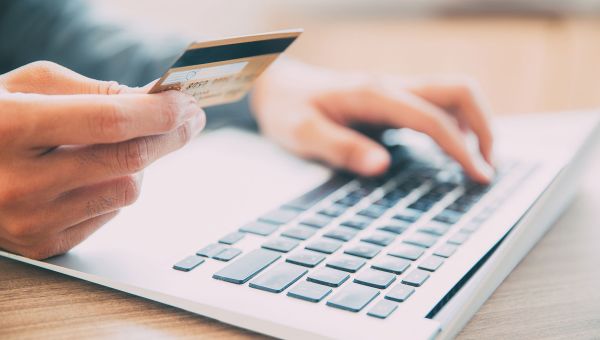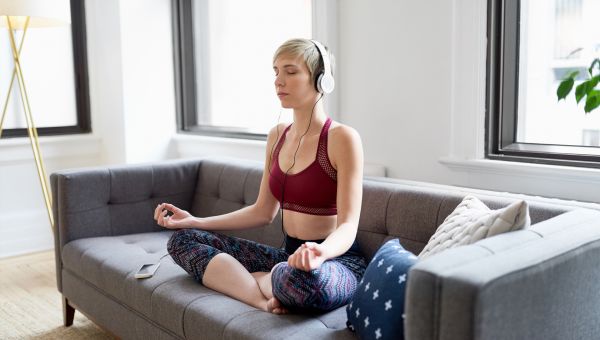6 ways to practice self-care
Keep a compliment list, head outside for a break, make a “no” list, and other simple ways to take care of yourself.

You may have heard the old saying that you have to take care of yourself before you take care of others. But why can that be so hard to do? Part of it may be hectic schedules, your instinct to be a nurturer, or because you’re a caregiver. But self-care is not selfish or a luxury. It is a key component of health and well-being.
The Millennial generation (those born after 1980) seem to have learned this lesson. In fact, in 2015, National Public Radio (NPR) reported that more millennials focused on personal improvement than any of the previous generations before. This could be because they have easier access to workout routines, healthy eating plans, and therapy sessions thanks to the internet, smart phones, and telehealth options, which have provided greater access to resources and information.
"People are really hungry for knowledge. It's a relatively new idea in our culture that we would be paying attention to how we feel and using that as a kind of intelligence. It's something that's really waking up in our culture and our generation,” Gracy Obuchowicz, a facilitator and self-care mentor and coach in Washington, D.C, told NPR in an interview.
Self-care is not just naps and buying yourself something new (although indulging in solitude is part of it). It's anything that supports your overall health and well-being—a quick nap, going to bed early, reading for pleasure, taking a walk, or preparing yourself a healthy meal. While it looks a little different for everyone, here are some ways to take care of yourself and avoid “running on empty.”

First, figure out what makes you feel good
Self-care is individual. So, before you even get started, it’s important to understand that your self-care routine may look a lot different than your friends, colleagues or even your significant other.
When coming up with your personal routine, you’ll want to try things that will help you feel good. Not sure where to begin? Here are 6 ways you can focus on you.

Make a “no” list
Personal coach Cheryl Richardson, author of The Art of Extreme Self-Care: Transform Your Life One Month at a Time, says that creating a list of things that you absolutely don’t want in your life will make you, “feel safe, protected, taken care of and free to be your best self.”
Think about the things that cause you stress or anxiety and try to document them so you can actively work towards eliminating (or minimizing) them from your life. Here are some of the examples Richardson collected from her friends:
- Not rushing
- Not using credit cards, unless you’re able to pay them off each month
- Not answering the phone during dinner
- Not participating in office gossip

Get some sunshine
Stressful day at work? Getting outside for 5 or 10 minutes may provide some immediate benefits.
A short walk, for example, could provide some immediate health benefits, including a reduction in stress and blood pressure as well as increased alertness. Heading outside and increasing your step count can also improve your mood, help you sleep better, and give you an energy boost.
Meanwhile, research has shown that having access to parks and green spaces are associated with a range of health benefits, including lower risks of obesity, diabetes, and heart disease.

Start a compliment journal
What’s not to love about keeping track of all the compliments people give you? Big or small, simply write them down when you get them, and when you’re in need of a boost, pull your journal out and give them a quick read.
When you need a self-esteem boost or are feeling down or low, flip through your compliments to remember how special, unique and talented you are. You can even add some of your favorite uplifting quotes in, too.

Set aside some time for mindfulness meditation
There’s lots of hype surrounding mindfulness—a practice that promotes awareness—these days, and for good reason. Practicing for just a few minutes can help you manage stress and anxiety levels and may even help boost your mood. The practice, according to the American Psychological Association (APA), includes focusing on training your attention and awareness to encourage mental well-being and a sense of calmness, clarity and concentration.
So how can you practice mindfulness? There are a few options and it all depends on what resonates with you. Here are some ideas to help you get started:
- Yoga: Take a class at a studio near you, or try online videos at home.
- Tai Chi: Learn about this ancient practice. Join a class or try it at home.
- Meditation: Meditation is another ancient practice used to relax the body and promote a sense of calm. It can help lower stress, enhance focus, make you feel more connected and improve your overall well-being. Anyone can meditate. It typically involves focused attention, controlled breathing, and a quiet setting with few distractions.

Take a break from social media and disconnect from negative followers
Social media can connect you to friends and family, motivate you when it comes to workout routines and fitness goals and inspire you to cook new-to-you healthy dishes. But social media can also have a negative impact on your well-being.
The APA says that attachment to devices and social media is associated with higher stress levels. What’s more: A large amount (44 percent) of people who are constantly checking their social media accounts—43 percent of Americans are, according to APA’s Stress in America—are more likely to feel to feel disconnected to family and friends, even when family is present. On the flip side, only 25 percent of non-constant checkers report these same feelings.
Taking a day, week or month break may probably seem like forever—especially if you’re attached to scrolling through Instastories every few minutes—but the benefits of a “social media detox” are worth it.
If you’re having a hard time disconnecting—make it easy on yourself and delete the applications from your phone. Once you do log back on, you may also want to consider taking a scroll through your social media connections. Unfollowing anyone who posts negative images, harsh messages or things you don’t agree with, may be a breath of fresh air.

Block off some time for yourself
And now, the tip you’ve been waiting for—taking some time for yourself.
Author and critic Marya Mannes once said when describing solitude, “The great omission in American life is solitude; not loneliness, for this is an alienation that thrives most in the midst of crowds, but that zone of time and space free from outside pressure which is the incubator of the spirit.” That means, that while taking some time for yourself may feel selfish, antisocial or lonely, that is most certainly not the case; disconnecting can actually have some major health benefits:
- You’ll be able to focus on your own thoughts and problem solve without anyone else’s input or suggestions. This can even encourage more creativity and focus when you do connect back with others.
- One Harvard study suggests that you’ll form more accurate and lasting memories if you’re experiencing something alone.
And while solitude and the amount of time you can spend by yourself is going to vary for everyone, it’s important you set aside some time to try it. If doing so seems difficult in the middle of your daily and weekly schedules, try setting aside time just once a month. After you’ve mastered that, you may find that making time once a week—or even once a day—is possible. Time in solitude might simply be 10 minutes of meditation or a few minutes alone to think or listen to music.
Find what works for you, and commit to making it a habit.
More On


video

article

slideshow


video


video
